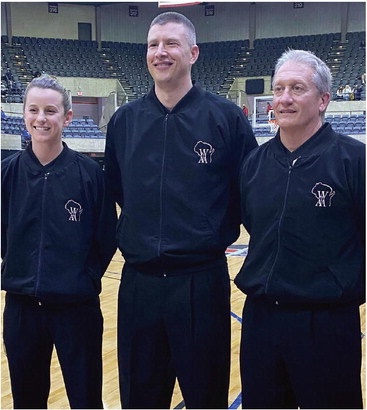OFFICIALLY AMONG THE BEST


Medford’s crew keeps getting the call at state tournament
Since March of 2008, Medford has been a fixture at WIAA state basketball tournaments,...


Medford’s crew keeps getting the call at state tournament
Since March of 2008, Medford has been a fixture at WIAA state basketball tournaments,...